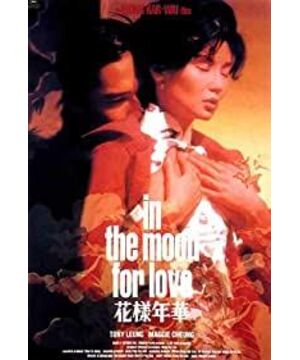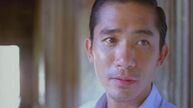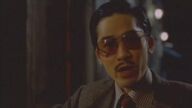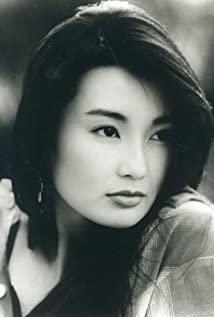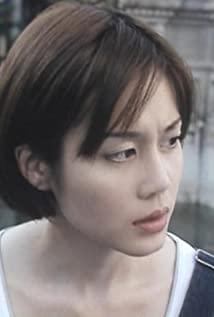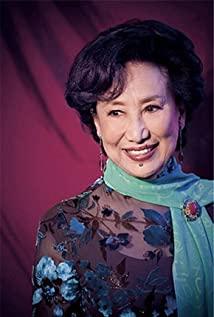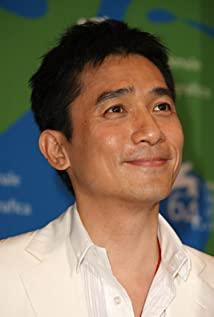They are in the mood for love, but not in the time and place for it.
—Roger Ebert
?Eat with OST
In fact, I can't remember the first time I watched this movie. The first time I watched it on the big screen last month was very different.
The actors' frowns and smiles, and the short dialogues, all express the subtlety and blankness of the Eastern style to the extreme. As I watched it, I couldn't help but wonder how the fellow American audience could understand the deep meaning behind the simple, seemingly just gossip about wanton noodles? How to understand Su Lizhen's grievance and almost unmaintainable decency when she found out that her husband was having an affair next door but did not dare to directly question Mrs.
When I was in my teens and twenties, I couldn’t read these words. I could only admire Su Lizhen’s dazzling cheongsam, and silently read a few subtitles in black and white at the end of the film (it seems a bit rustic now), and keep in mind the sentence “If I If you have one more ticket, will you come with me?" With the increase in the number of films watched in recent years and the gradual enrichment of my life experience, I finally noticed when I was in my late thirties when I watched the film again. made it clear.
The film is composed of seemingly random and fragmented fragments of life, but in fact each segment is a key event that drives the development of the story, and also hints at the changes in the way of interaction and psychology between the two. When shooting the scene of two people dating, the jump-cut technique is used between eating steak and going home for a walk, combined with the change of cheongsam, to imply that this is a meeting of different days. It's like taking a minute from each of their many meetings and collaged into a complete snippet of one date in a day. As for the two cheating spouses who played a key role in the whole story, they never showed their faces. They could only listen to their voices, see their backs, torsos, and sometimes even show only a pair of hands holding a newspaper. In the story of Su Lizhen and Zhou Muyun, their cheating spouses are very important, and their cheating contributed to the germination of the ambiguous relationship between Su Zhou and Zhou Muyun; but their appearances are insignificant, tall, short, fat and thin, and they will not affect Su Zhou's story. , they are just symbols.
The jump-cut technique came from Godard, but Wong Kar-Wai used it to reveal his oriental aesthetics' admiration for "blank". It is this kind of treatment that makes the film a typical East Asian love story with a subtle decency to the core.
I don't know what the culture of Hong Kong citizens is like, but when I watch the interaction between Zhou and Su, the two words that appear the most in Jin Yucheng's "Blossoms" often come to mind: no sound - they don't need words, they just need to Slight movements, concealed eyes, unanswered phone calls, there are complex and deep emotions that are invisible and surging, and thousands of words that have never been spoken are tightly wrapped around the two. Stumbled upon a similar description from Roger Ebert: And when you're holding back and speaking in code, no conversation is boring, because the empty spaces are filled by your desires.
The male and female protagonists don't have any act of crossing the line, but their love and desire are so full that they overflow the screen and flow into the hearts of the audience-in this regard, the brilliant soundtrack has a lot of credit.
In "Aquellos Qjos Verdes", the two of them ate alone for the first time, pretending to be 90% skeptical and 1% fluke. They used the same questions to test back and forth and finally determined that their spouses were having an affair. With a bit of sadness and curiosity, I wanted to explore the second How did the derailment of a person start? At this time, the two always kept an arm's distance when they walked together, and only felt compassion for each other; in the singing of "Te Quiero Dijiste", Su Zhou once again ate alone, and the scene of pushing back and forth to eat at both ends of the meal. On the plate were Zhou Muyun's ketchup and Su Lizhen's extra yellow mustard sauce in order to imitate Zhou's wife's habit. Su stubbornly dipped in the unfamiliar red sauce, her eyes were full of anger and unwillingness. The two cheating lovers still have a real dialogue with a bit of fake drama:
- "Why did you call my company today?"
- "Nothing, I just want to hear your voice"
- "You're quite like my husband, glib"
Maybe from this moment, maybe earlier, the love has gradually sprouted. In the taxi, both of them are wearing wedding rings and gradually approaching the fingertips that they want to touch and avoid. In the sesame paste deliberately boiled by people who were sick in the rain the night before and wanted to eat. ,
Then there is the unforgettable and familiar Yumeji's Theme. Every time the cello sounds, it is like a singing witch in the sea, dragging the audience into the endless sea of desires woven by the singing, sinking deeper and deeper, unwilling to wake up, the desire is entangled in each section and walking down mottled On the swaying skirt of Su Lizhen, who went to make wonton noodles in the street, her hair was messy under the fluorescent lamp in the editing room. Zhou Muyun, who was very worried, held it in the smoke from the cigarettes at her fingertips. Under the red light of the hotel room where it happened, I was wandering between the lines of a martial arts novel written word by word on a checkered manuscript paper with a pen; even though it was in two places, Su Lizhen, who went to the window to stare while deliberately participating in the boring card game of the landlady's house, thought to herself. The person watching also happened to light a cigarette in the editing room and looked into the distance through the glass facade. The two separate shots became sticky and affectionate because of the same desire, a lovesickness, and two idle worries.
They suppressed the untimely affection, and the struggle in their hearts did not stop for a moment. The close-up of Su Lizhen's black stiletto heels and the hem of the floating red trench coat making continuous noises as she ran to and fro on the corridors and stairs outside Zhou Muyun's rented hotel room were all images of her inner hesitation and struggle.
At the beginning, they just wanted to understand how their spouses decided to have an affair. They simulated a date for the two of them; Zhou Muyun accompanies Su Lizhen to practice questioning the truth about her husband's infidelity; in the end, they have to practice what their own differences look like. Su Lizhen burst into tears, finally realizing, or admitting to herself, that there was nothing between them - she couldn't help hugging the body she had probably never hugged before, leaning on the shoulder she had longed for for a long time, so that she could not say anything. Emotions are released from tears.
- "Before I just wanted to know how they started, now I understand, a lot of things happened without knowing it. I thought I was fine, but I started to worry about when your husband will come back, it's better not to come back..."
- "I don't want to go home tonight"
On the radio came Zhou Xuan's "In the Mood for Love", the two people separated by a wall could not see each other, each leaning on the strings and singing farewell; in the minor melody of "Quizas Quizas Quizas", the lonely back and the evening left alone in the aisle. The beauty who sat in front of the mirror and wept silently was thinking of a hypothetical question that she couldn't ask.
Years later, this thought can only be pinned on the women's embroidered slippers that are also carried with you when you travel across the ocean, and relive it in the silent conversation that no one spoke after three rings. They have always been like this, smelling each other's breaths and communicating with each other, and in the end they can only become secrets buried in the tree caves of Angkor Wat.
I don't like to watch romance movies, but "In the Mood for Love" with its lingering aftertaste has a very special appeal to me.
Finally, the Cantonese song "Angkor Wat" that I like very much is played. The inspiration of the lyricist Lin Ruoning came from "In the Mood for Love".
When I watched the MV, I only had one thought: if I met the married Tony Leung, I wouldn't have to worry for a second. Moral guilt will be discussed later, who can resist not falling in love with Tony Leung? ? ? [Only Maggie Cheung can
View more about In the Mood for Love reviews


